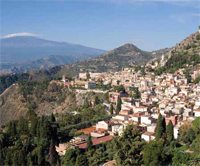 One of the perks of being a professional is that you get to invent new and sometimes ridiculous-sounding words. Lawyers, for example, toss around “nonjusticiability” and “tort law” without any noticeable sense of shame. As my spell check likes to remind me, wine writers also make up odd vocabulary, foremost of which is the word “minerality.”
One of the perks of being a professional is that you get to invent new and sometimes ridiculous-sounding words. Lawyers, for example, toss around “nonjusticiability” and “tort law” without any noticeable sense of shame. As my spell check likes to remind me, wine writers also make up odd vocabulary, foremost of which is the word “minerality.”
Minerality is an elusive but highly prized quality. Although it connotes a flavour (it is often likened to the fresh smell of rain falling on a stone path), it is more than just a taste: it implies that good soil has given the wine an aura of vitality, like a child energized by healthy food and vitamins.
I’ve been thinking about minerality thanks to a recent trip to Sicily. The incredible soil of this island off the coast of Italy, especially the wine region surrounding the active volcano Mount Etna, imbues its wines with a mineral-driven elegance. The whites are chalk-dust dry, and as intense as a flare. There is nothing more refreshing to sip as you sit in an open-air restaurant eating calamari and plotting your next nap.
It was not always so. For many years, Sicilian wines were flabby and mass-produced. This tradition of mediocrity blinded people to a secret in plain sight: the island is a winemaker’s paradise. The highlands are dotted with absurdly steep vineyards tilted toward the sun that can nurture native grapes of character and individuality. The high altitudes, warm days and cool nights are the building blocks of aroma and longevity. These advantages are finally attracting an influx of world-class winemakers who are promoting Sicily’s traditional grapes while experimenting with international favourites like Syrah and Chardonnay.
Perhaps it is a hangover from the dark days, but Sicilian wines are rare at the LCBO. The only solution, of course, is to visit Sicily yourself. Never mind the sun, the Greek ruins, the charming islets or the incredible food; you’re there for the minerality.
Into the Short Cellar
![]() Casa Planeta 2010 Syrah
Casa Planeta 2010 Syrah
$11.95, Sicilia, LCBO #219857
Planeta is one of Sicily’s oldest aristocratic families but the ancient pedigree belies a modern winemaking approach. Its entrylevel Syrah is an impressive bargain, with fresh flavours of mulberry and pomegranate. Its more expensive bottles: just stunning. 87/100
![]() Rudini 2008 Nero d’Avola
Rudini 2008 Nero d’Avola
$18.95, Eloro Pachino, Sicilia, Vintages #270298
Eloro Pachino is a tiny subregion near Avola, the original home of Nero d’Avola. This superb bottle shows how entrancing even inexpensive Neros can be. Perfectly balanced, with tart plum counterpoised against chewy tannins and a spicy finish. Aging will add even more complexity. 90/100
Sicily’s got grapes
Although French varietals like Chardonnay are popular in Sicily, the island’s most exciting wines are made from native grapes. Here are the Short Cellar favourites:
- Nero d’Avola is an inky red grape that I predict will soon seize the imagination of wine lovers. Although the wine it produces isn’t heavy, it has a wild and gripping intensity. Move aside, Syrah.
- Inzolia makes an elegant but surprisingly rich white wine. Often a deep yellow colour, it tantalizes with strange notes of nuts, beeswax or liquorice. Its fine acidity goes best with seafood.
- Grillo produces an exotic white wine with a fat body and a rich, expressive texture. Aromas of mango or pineapple are so extravagant that they begin to taste like marzipan. Delicious and odd.
Matthew Sullivan is a civil litigator in Toronto. Email matthew@lawandstyle.beta-site.ca
Photo: Adrian Beesley/iStockphoto

